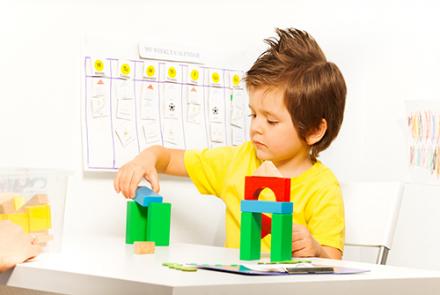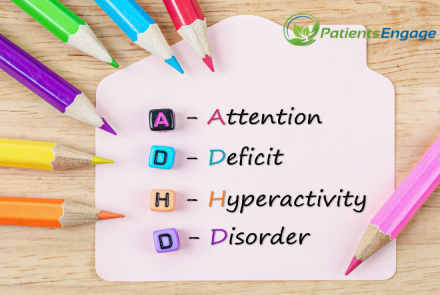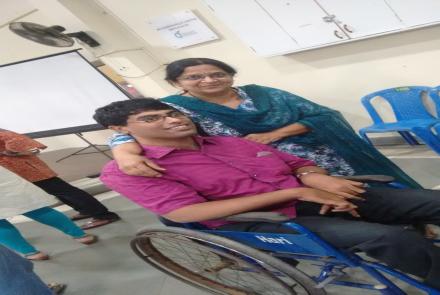
If your child is behind on the developmental milestones, it is important to act as early as possible. Lakshmi Gopalakrishnan, a Special Educator and Rehabilitation specialist, tells you why and what it involves.
Human learning and development is most rapid in the preschool years. This is the time of ‘Maximum Readiness’ and is very important, especially if the child has a delay in development/a disability/high risk of attaining a delay or disability. If the ‘most teachable moments’ or ‘stages of greatest readiness’ are not taken advantage of, a child may have difficulty learning a particular skill at a later time.
Neural circuits, which create the foundation for learning, behaviour and health, are most flexible or “plastic” during the first three years of life. Over time, they become increasingly difficult to change. Every time we learn something, neural circuits are altered in our brain. These circuits are composed of a number of neurons (nerve cells) that communicate with one another through special junctions called synapses. All our memories of events, words, images, emotions, etc. thus correspond to the particular activity of certain networks of neurons in our brain that have strengthened connections with one another through learning.
Normally, Infants learn through play and exploring the environment. Increased experiences and interaction with the environment will increase the infant’s skills. But a child with a delay/disability may be unable to explore the environment independently. He may become passive and discouraged and the important neural connections may not get formed during the formative years.
With intervention at birth or soon after the diagnosis of a disability or high risk factors, the developmental gains are greater and the likelihood of developing problems is reduced.
The earlier the intervention, the more effective it is.
What is Developmental Delay?
It means that a child is delayed in some area of development. There are five areas in which development may be affected:
- physical (reaching, rolling, crawling, and walking);
- cognitive (thinking, learning, solving problems);
- communication (talking, listening, understanding);
- social/emotional (playing, feeling secure and happy);
- Self-help (eating, dressing).
Sometimes parents and family members become concerned when their baby or growing toddler doesn’t seem to be developing according to the normal schedule of ‘Milestones’. Some typical concerns expressed are… “He hasn’t rolled over yet.”
“The girl next door is already sitting up on her own!” “She should be saying a few words by now.” The range of Normal Development is very broad - one child may start taking independent steps at 10 months while another may start around 14 months.
Children develop differently and at their own pace.
Despite the above, if you think that your child is not developing at the same pace or in the same way as most children his or her age, talk first to your child’s pediatrician.
Explain your concerns. Tell the doctor what you have observed with your child. Your child may have a disability or a developmental delay, or he or she may be at risk of having a disability or delay.
You think your child isn’t developing as expected. What now?
One of the first things that will happen is that your child will be evaluated to see if he or she actually has a developmental delay or disability. The evaluation group will be made up of qualified people who have different areas of training and experience like a physiotherapist, a special educator, a speech therapist and an occupational therapist. They know how to work with children, even very young ones, to discover if a child has a problem or is developing within normal ranges. Group members may evaluate your child together or individually. As part of the evaluation, the team will observe your child, ask your child to do things, talk to you and your child, and use other methods to gather information. These procedures will help the team find out how your child functions in the five areas of development. If the child is a very young infant, an assessment of the infant’s reflexes will provide information on his/her development.
Sometimes it is known from the moment a child is born that early intervention services will be essential in helping the child grow and develop. Often this is so for children who are diagnosed at birth with a specific condition (Down’s Syndrome/Sensory loss etc.) or severe prematurity, very low birth weight, illness, or surgery soon after birth.
The term Early Intervention refers to services given to very young children with delay/special needs, generally from birth until the child turns three. Services include therapy, special education, occupational therapy and physical therapy, provided either in a centre or in the child's home. The hope is that these services, provided early, will address any delays in development so that the child will catch up, and not need services later on. At age 3, if a child still needs help, he or she might be referred to a Special Educator for continued services.
Remember this: Early intervention….
- is never too early
- is not invasive
- bonds baby with family
- makes a difference
- has no side effects
From 2000 to 2003, Lakshmi Gopalakrishnan attended the High Risk babies’ Clinic at the Public Health Center, Chennai, where she did assessments and provided intervention for neonates and young infants who were categorised as High Risk











